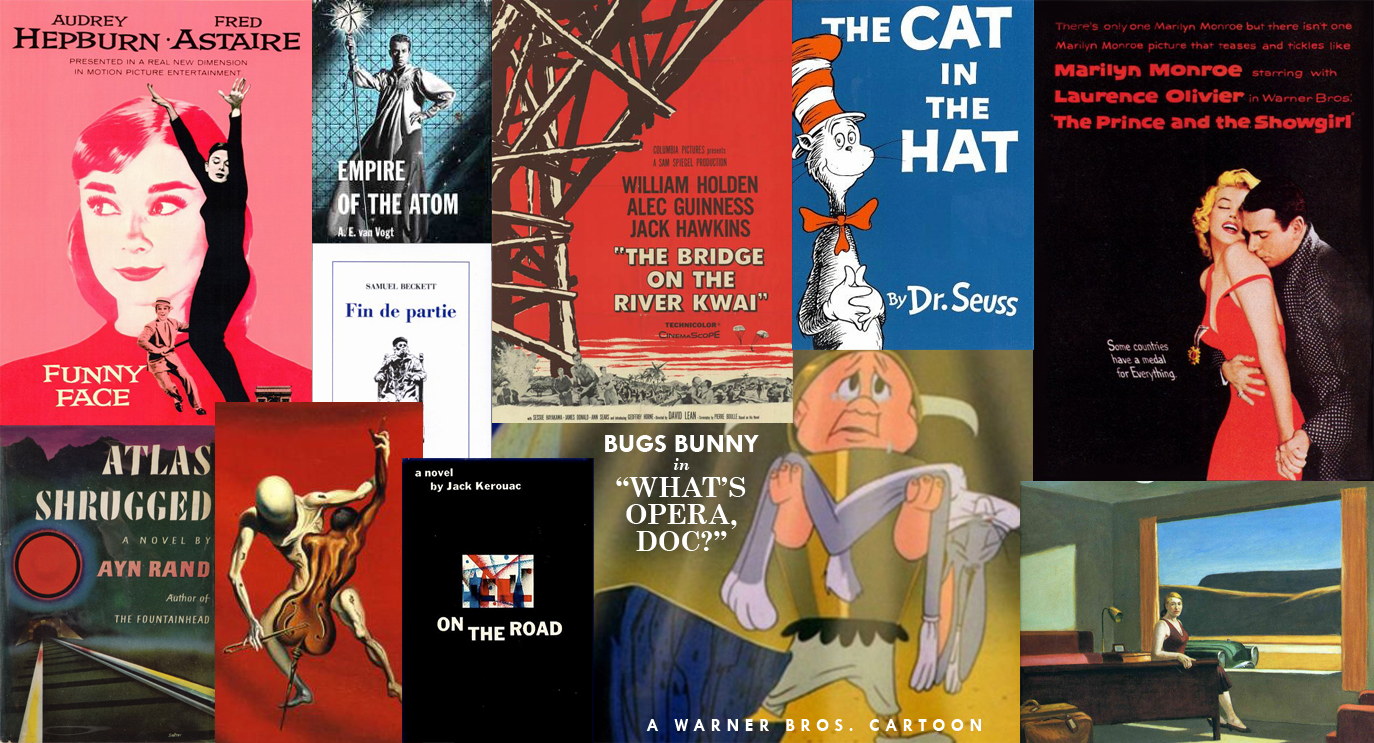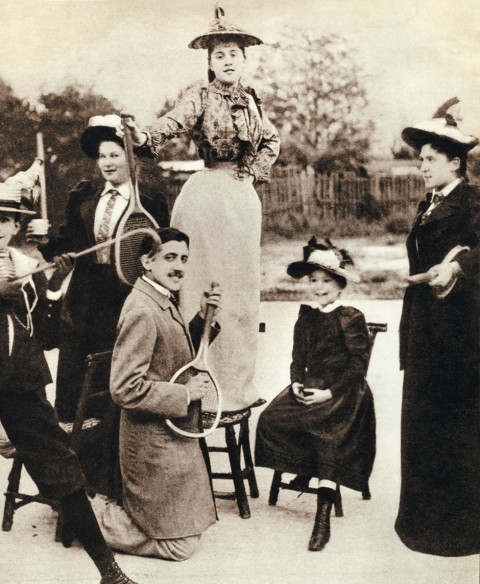Every year, Duke University’s Center for the Study of the Public Domain highlights major works that would have entered the public domain had the copyright law that prevailed until 1978 still remained in effect today. That law (established in 1909) allowed works to remain under copyright for a maximum of 56 years — which means that 2014 would have welcomed into the public domain works first published in 1957. Some highlights (from the longer list) include:
Books
- Jack Kerouac, On the Road
- Ayn Rand, Atlas Shrugged
- Dr. Seuss, How the Grinch Stole Christmas and The Cat in the Hat
- Studs Terkel, Giants of Jazz
- Ian Fleming, From Russia, with Love
Movies
- 12 Angry Men (Henry Fonda, Lee J. Cobb, Jack Klugman, Ed Begley, and more)
- A Farewell to Arms (Rock Hudson and Jennifer Jones)
- Jailhouse Rock (Elvis Presley)
- The Seventh Seal (written and directed by Ingmar Bergman and starring Max von Sydow and Bengt Ekerot)
- Funny Face (Audrey Hepburn and Fred Astaire)
- Gunfight at the O.K. Corral (Burt Lancaster and Kirk Douglas)
Music
- “That’ll Be the Day” and “Peggy Sue” (Buddy Holly, Jerry Allison, and Norman Petty)
- “Great Balls of Fire” (Otis Blackwell and Jack Hammer)
- “Wake Up, Little Susie” (Felice and Boudleaux Bryant)
- Elvis Presley’s hits: “All Shook Up” (Otis Blackwell and Elvis Presley) and “Jailhouse Rock” (Jerry Leiber and Mike Stoller)
- The musical “West Side Story” (music by Leonard Bernstein, lyrics by Stephen Sondheim, and book by Arthur Laurents)
Art
- Dali’s “Celestial Ride” and “Music: the Red Orchestra”
- Edward Hopper’s “Western Motel”
- Picasso’s “Las Meninas” set of paintings
Under the current copyright regime, you’ll have to wait another 39 years — until 2053 — before these works hit the commons.
You can find a longer list of 1957 works still under copyright on Duke’s website.
Note: If you’re wondering how many works of art entered the public domain in 2014, the answer is simple: 0. As the Duke site notes, “Not a single published work” is entering the public domain in 2014. “In fact, in the United States, no publication will enter the public domain until 2019.”
Related Content:
Sherlock Holmes Is Now in the Public Domain, Declares US Judge
Free Philip K. Dick: Download 13 Great Science Fiction Stories





